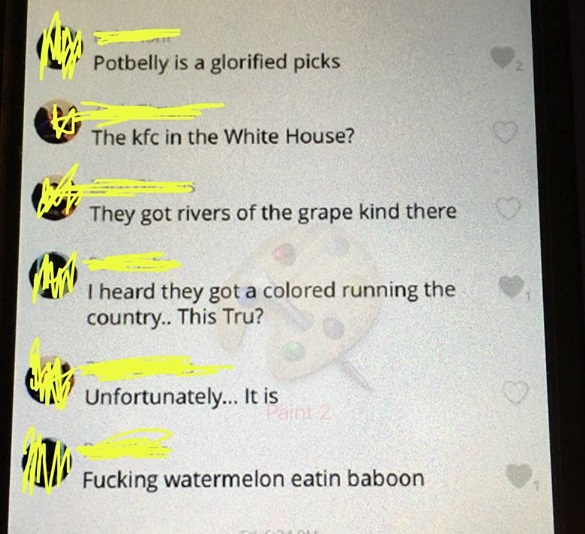Students criticize Saint Louis University over handling of baseball players’ racist text messages – Inside Higher Ed
In a decision that has angered black students and campus activists, a group of Saint Louis University baseball players who made racist remarks in a group text message last year, including referring to President Obama as a “watermelon eatin baboon” (sic), will not be formally punished.
The messages were sent less than a year after the private Jesuit university faced protests that only ended when the university agreed to more rigorously address racial inequality. Members of the university’s Black Student Alliance and others on campus argue that allowing the baseball players to so far go unpunished shows a lack of dedication to carrying out that agreement, but university officials have said the remarks cannot be punished as a bias incident because they were made privately.
Amid a growing backlash, officials clarified this week that they are still “determining an outcome” to the incident. Jonathan Smith, the university president’s special assistant for diversity and inclusion, said that while privacy laws prevent him from commenting on any specific actions the university will take, officials are “engaged in putting together a strong restorative justice framework for those injured” by the statements.
“It’s going to be a restorative justice process where students are going to be involved in determining what outcomes are necessary for justice to take place,” Smith said. “That kind of speech does not reflect, in any way, our values and does not reflect what we work daily to be.”
The text messages were sent last year by the team’s pitchers during a trip for a game in Washington. What began as a conversation about where the players should eat dinner quickly devolved into a string of racist comments.
“The KFC in the White House,” one student suggested. “They got rivers of the grape kind there,” said a teammate, before another player described the president as a “Fucking watermelon eatin baboon.”
Some of the comments received likes from other players, and nobody criticized the messages in the conversation. One pitcher saved a screen grab of the chat and sent the image to his roommate, the former manager of the baseball team.
The former manager, Brenden Twomey, had recently decided to leave the team, citing the “culture that was present,” but he was unsure what to do about the message. Earlier this month, he was prompted by a friend, Dominique Morgan, to send the image to the university and to file a formal bias incident report.
Frustrated by what she considered to be inaction by the university, Morgan also sent the image in an email to the university’s Black Student Alliance. “I’m curious, as I hope you are too, how a university that so adamantly promotes inclusion and diversity will deal with one of their sports teams fostering racist sentiments,” she wrote.

In a video message, Twomey later said his roommate, who had sent him the message, retaliated against him by spitting chewing tobacco on the floor outside his bedroom after the screen grab was posted online. Last week, Jonathan Pulphus, the president-elect of the Black Student Alliance, shared a redacted version of the text message conversation on his Facebook page, drawing wider attention to the remarks.
“This, for me and other black folk, is the tip of the iceberg,” Pulphus wrote.
Some on campus continue to ask that the pitchers, or even the whole team, be punished. One suggestion gaining support calls for the team to voluntarily sit out this year’s Atlantic 10 conference tournament.
While Saint Louis University is a private institution that is not legally bound by the First Amendment and can punish students for speech that violates its code of conduct, officials said they quickly investigated the incident and determined that, as the messages were sent in a private conversation, the university could not punish the students.
Instead, players have started to work with the university to “organize opportunities for dialogue on diversity, equity and inclusion,” the team’s four captains said in an open letter.
In the letter, the captains also apologized for the “racially biased” messages. “We, too, are frustrated, and we feel that the comments do not accurately reflect the values that we hold,” the captains stated, pointing to the university’s Oath of Inclusion that all students, staff and faculty are expected to follow.
Pulphus, the incoming BSA president, argued that the team and university have already failed to live up to that promise.
“What kind of value-driven campus is this, where people think they can represent the university and spew this awful hatred?” he wrote. “The answer is simple: this is a campus whose mission and values are not taken seriously.”



